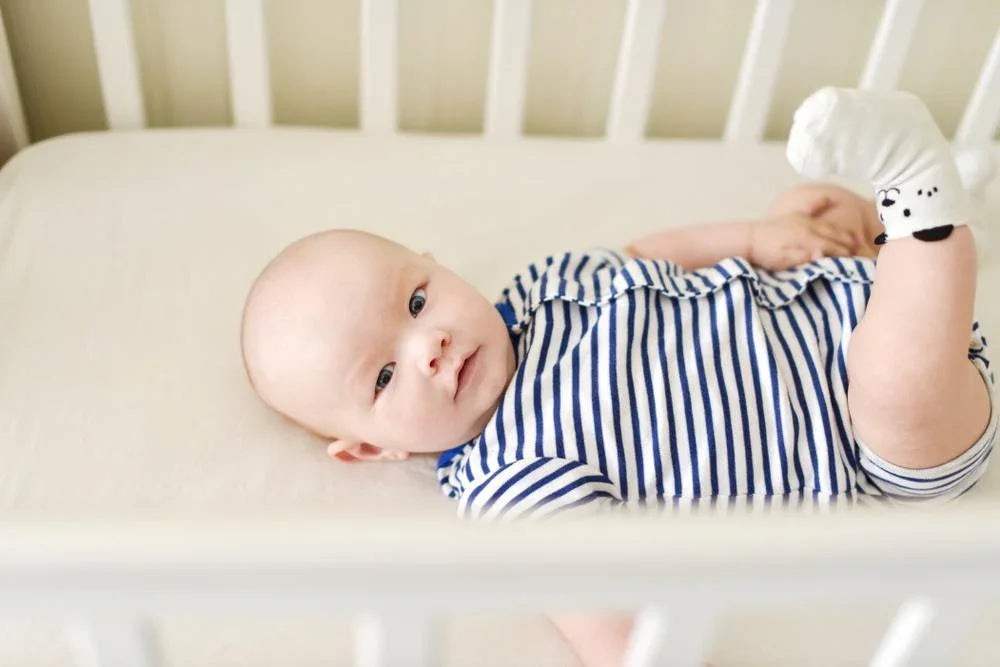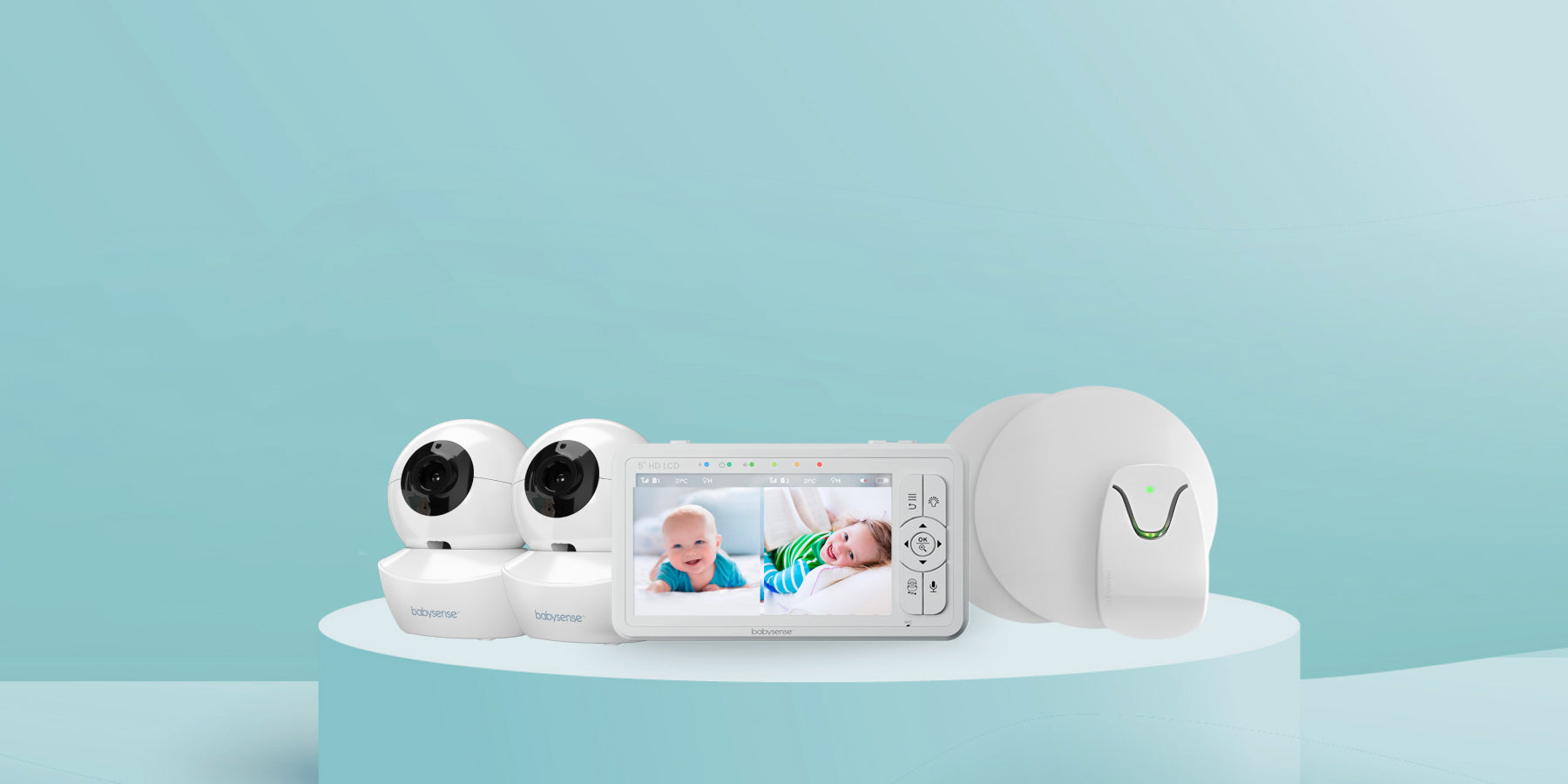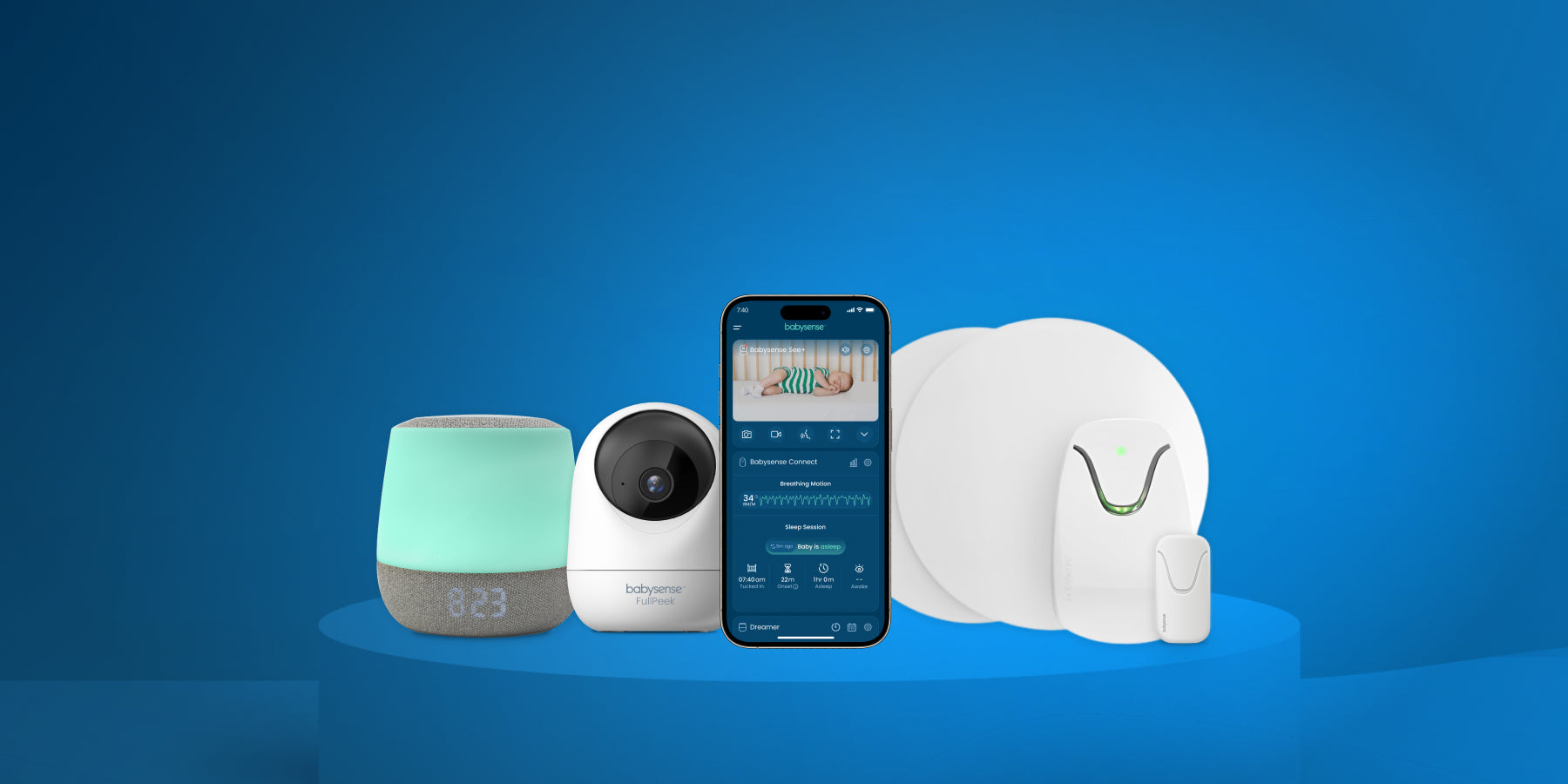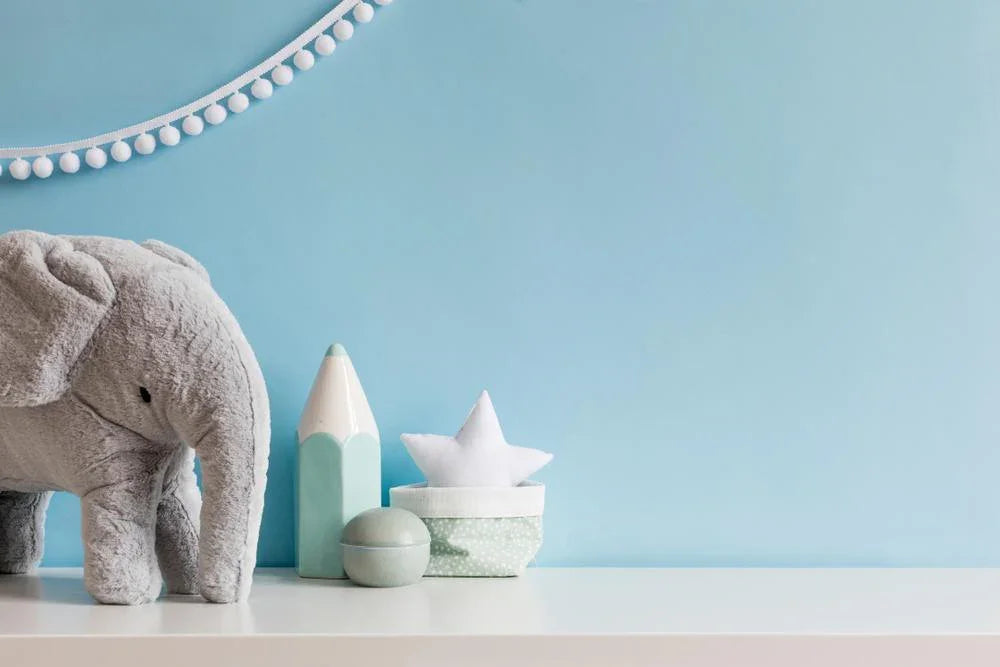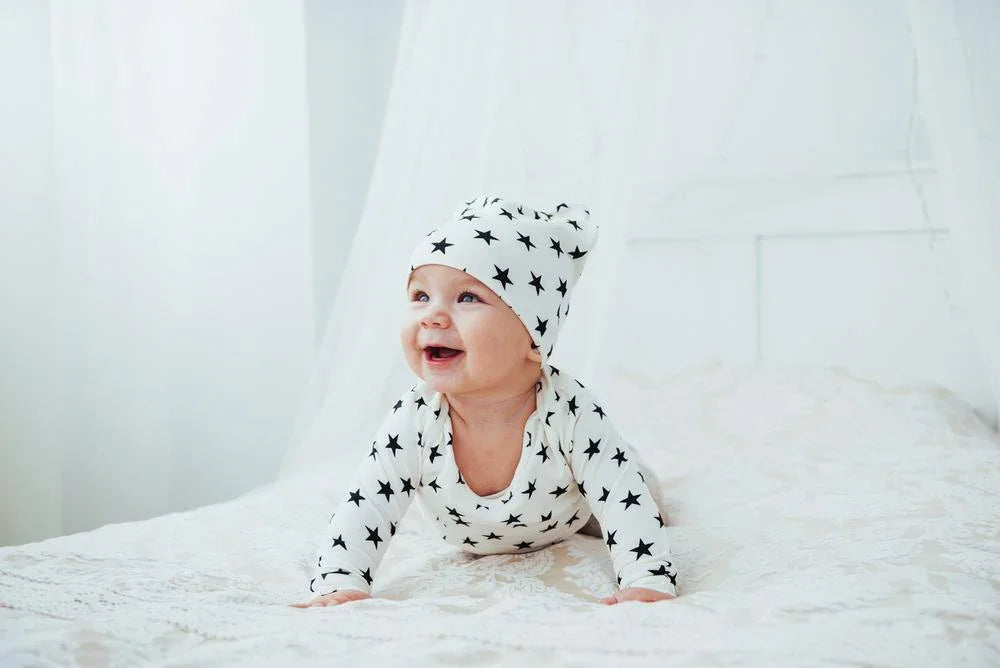One of the joys of being a parent is getting to see all the adorable antics of your new baby. However, it can be a little scary when they do something unsettling, like sleeping with their eyes open, something you’ll sometimes see when watching your little one on your video baby monitor.
If you’re a new parent and you notice your baby sleeping with their eyes open, you probably have a few questions and want to know if it’s normal.
To help put your mind at ease, we have answered the question of “why does my baby sleep with their eyes open?” and a few more related questions.
Should I Be Worried?
In most cases, a baby sleeping with their eyes open is not a concern. But, in fact, it is a fairly common ailment that affects up to 20% of people. The medical term for this condition is Nocturnal Lagophthalmos, yet it is more commonly called Physiological Lagophthalmos in infants and babies.
Lagophthalmos, though it sounds intimidating, simply means sleeping with your eyes open. The word comes from the Greek word Lagos which means “hare”. Incidentally, hares also keep their lids open while sleeping.
Lagophthalmos can have different causes and symptoms, yet physiological lagophthalmos is just the body’s way of reacting as it grows. Therefore, there are no medical causes, symptoms, or side effects.
What Causes It?
Unfortunately, medical researchers are not sure why physiological lagophthalmos happens to some babies. While it is not considered rare, it only happens to a minority of infants. So, why does your baby sleep with their eyes open?
Many medical professionals believe it has to do with their Rapid Eye Movement (REM) sleep. When we sleep, we fall into REM where our eyes make rapid movements in all directions, yet our eyes don't send visual signals to the brain.
Babies spend a lot more time in REM sleep than adults. As their minds keep growing and their nervous system develops, some experts believe this physiological growth keeps the eyelids slightly open. Most infants that have this will only have their lids open minimally, and you will likely notice a lot of eye movement, as well.
Other Causes
Besides a longer REM cycle, there are a few other reasons your baby could have lagophthalmos. Although less likely, it could be a hereditary trait or a medical condition.
If you or your spouse sleep with your eyes open, it may be why your offspring is doing the same thing. It doesn’t necessarily have to come from a parent, either. Grandparents and other relations can pass down the quirk to your child, as well.
In even rarer cases, sleeping with their eyes open could point to a congenital abnormality, damaged facial nerves, or thyroid issues. Keep in mind, though, these possibilities are rare and not likely to be the case. What’s more, you will typically notice other symptoms or issues along with the lagophthalmos.
A good example of other symptoms is shown in a case study that linked lagophthalmos to hypernatremic dehydration. Hypernatremic dehydration refers to dehydration in children where there is a sodium deficiency. In this study, however, they found lagophthalmos to be a side effect of the principal illness. But, again, this is a rare occurrence and not likely to be the case in infants.
Does It Hurt My Baby?
Once the question of “Why does my baby sleep with their eyes open” is answered, your next thought is likely to be whether or not your little one is in pain? As mentioned above, most babies (and their parents) don’t need to be concerned. It is not painful or harmful to your infant.
That said, the reason we close our eyes during sleep is to protect our eyes and keep them moist. When they remain open while napping, your brain doesn’t give the signal to blink which can cause your eyes to dry out.
Dry eyes are something you want to watch out for with your baby. Typically, their eyes will only be open a few millimeters, but that doesn’t mean irritation and dryness can’t occur. If you notice any redness, dryness, etc, you should consult your pediatrician for help.
Is There a Treatment Option?
Thankfully, most babies outgrow lagophthalmos by about 18-months. It’s also important to point out that while their eyes are open, you can rest assured they are asleep
In the meantime, there are a few things you can do if the sight makes you uneasy.
Keep It Dark
A good practice is to keep their sleeping area as dark as possible. This will help them stay asleep if they should happen to wake, and it will be less stimulation for their eyes should they have them open slightly.
Close Their Lids
If the sight of your baby’s eyes being open gives you the willies, you can close them. Wait until they are completely asleep, and use the pads of your fingers to lower their lids as gently as possible.
Use a Humidifier
If dry eyes and irritation have you concerned, installing a humidifier is another good idea. Keep it to a low setting, place it far from their crib, and don’t add any fragrance or oils that can irritate their eyes.
Remove Unnecessary Bed Items
We don’t know why lagophthalmos happens, but the constant growth of your baby's mind may play a factor. For that reason, it’s a good idea to keep their crib free of stuffed animals, blankets, pillows, pumpers, etc that could stimulate them or disrupt their sleep. Furthermore, removing these items lowers the chances of Sudden Infant Death Syndrome (SIDS).
Create a Calm Area
It can be easier for your child to be startled awake if their eyes are already open. To avoid this, make sure there is nothing that could frighten or alarm them. Keep alarm clocks and loud toys out of the sleeping area. Make sure pets are at safe distance, use sound machines for soothing noises, and keep televisions/music low.
Create a Routine
Some parents have found creating a bedtime routine helps their baby recognize when to sleep. Combining meal time with a warm bath afterward is a nice and relaxing way to get ready for a snooze.
When Should I Start To Worry?
Like most uneasy parents, even a doctor’s “don’t worry about it” diagnosis can still give you lingering doubts. To alleviate those fears, we have provided some warning signs you should look for that indicate a more serious issue.
As mentioned, babies with physiological lagophthalmos sleep with their eyes fractionally open. It is possible for them to be fully open, as well, but not all the time. In the same vein, if they have trouble blinking or closing their eyes when they are awake, you want to seek medical attention. This can be caused by a nervous system issue including facial nerve damage.
Something else to be aware of is severally red eyes. Additionally, watch your infant for signs of distress such as rubbing their eyes, crying when going to sleep or waking up, discharge in the eyes, fever, and other abnormal signs.
You should also consider how long they’ve had the trait. Normally, it won’t occur for longer than two or three months or past the 18-month mark.
However, there are documented cases of malformation of the eyelids, though it is rare. This abnormality might not show other outward symptoms. If your baby is sleeping with their eyes open for an extended period, you should reach out to medical professionals for help.
If it is a family trait, also be aware of your (or the family members) diagnoses. Lagophthalmos, in rare cases, can move from infancy into adulthood. A warning sign to watch for in this case is a glassy stare right before falling asleep.
Final Thoughts
Overall, if you are uneasy or concerned, the best course of action is to check in with your child’s doctor for advice. Make sure to be prepared. Keep a sleep journal for your baby, and try to take a video if possible. This will give your pediatrician the best information to work with and decide on the best course of action.
Although a bit unsettling, your baby sleeping with their eyes open is typically nothing to be concerned about. It is just their natural way of developing their mind and nervous system. Time is the best cure to have your precious bundle sleeping with their peepers closed.

